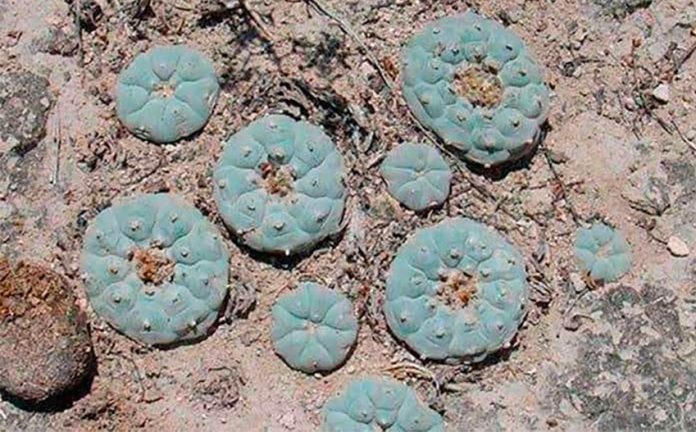For the past 25 years, the wild peyote that grows in San Luis Potosi has been steadily decreasing as harvesters pick it illegally for personal and recreational use.
A small, spineless cactus that is native to the dry, desert climates of the southwestern United States and northeast Mexico, peyote is used by the indigenous peoples of the area, the Wixárika, as a psychedelic medicinal plant as part of their religious ceremonies. According to their belief system, the state of consciousness that peyote induces helps them speak directly with their gods and receive messages from them in return.
“The number of rocks you see everywhere, that was how it used to be with peyote in this area,” said Candelario Martínez, a member of the local indigenous community.
Various controls have been implemented to keep the peyote from being illegally collected, but so far they are not working to keep the area safe from the plant’s depletion. In 2000, a pilgrimage route made up of over 140,000 hectares of land and encompassing Real de Catorce, Charcas, Vanegas, Villa de la Paz, and Villa de Ramos was declared a Natural Protected Area, but these federal and state restrictions, in conjunction with efforts by landowners and local farmers, have not stopped the illegal harvest.
Some of the Wixárika ceremonial sites like El Bernalejo have also been vandalized. Locals blame the problem on zero enforcement of local and federal laws as well as the psychedelic tourism industry.
Residents said in interviews that local collectors will dig around the plant and cut it evenly from its root, covering it back up with dirt so that the plant can regenerate, but outsiders pull plants up roots and all both to use and take home to replant. Up until four years ago, plants were relatively plentiful, says one community member, but not anymore.
With reports from PulsoSLP
